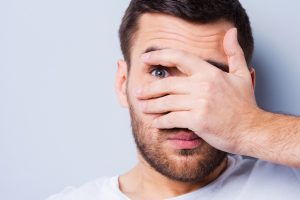How Much Media Consumption Is Too Much?
What we need more than ever is wise consumption of media.
 When I learned I was accepted into the month-long silent meditation retreat at Spirit Rock Meditation Center, I was hesitant. There were many reasons for the hesitancy, and I questioned whether I could live without my iPhone, MacBook, or any other digital device for an entire month.
When I learned I was accepted into the month-long silent meditation retreat at Spirit Rock Meditation Center, I was hesitant. There were many reasons for the hesitancy, and I questioned whether I could live without my iPhone, MacBook, or any other digital device for an entire month.
Considering I teach lawyers to use mindfulness and meditation to have a more easeful and fulfilling law practice, you’d think being completely “off-the-grid” would come easy, but the reality of living in 2017 is that each and every one of us, to some extent, struggle to maintain a balance between screen-time and no-screen-time.
One take away or self-care tip I suggest at every mindfulness presentation is to get the smartphone out of the bedroom! My husband and I made a commitment to try this for a month last year and it made a radical difference in our quality of sleep. Especially for those who do federal practice, you may know that feeling of randomly waking up at in the middle of the night, and seeing all the ECF notices come through at midnight. Which is definitely not good for falling back asleep. After the one-month experiment, we decided to make it a permanent habit.

Is The Future Of Law Distributed? Lessons From The Tech Adoption Curve
Sometimes, I get pushback on my advice about the no smartphone policy in the bedroom and one common excuse I hear is, “I use my phone as an alarm clock.” Guess that? You can go old school and buy yourself a cheap $10 alarm clock.
The experience of sitting with 80 other people on a month-long silent meditation retreat was profound and I’m still digesting it (more to come on that in future posts), but if you’re curious as to what the daily schedule looks like, you can take a look here. Surprisingly, there were at least three other lawyers at the retreat.
At the end of the month-long retreat, I had no idea what had transpired in the outside world. The folks at the retreat center, in their effort to ease the transition from being completely disconnected back to the 24/7 connected world, printed out the Wikipedia entry for the past month. It was about 12 pages long.
What surprised me was the lack of emotional turmoil that is typical when I read the news. Prior to the retreat, I was already trying to limit my news consumption and had decided to only read the New York Times and whatever updates I happened to catch on Twitter. However, what I realized was that even the New York Times has an element of sensationalism. The reality is that the companies that report news rely on the emotional reactions and trauma of their readers. It keeps you hooked and coming back for more.
Sponsored

Is The Future Of Law Distributed? Lessons From The Tech Adoption Curve

The Business Case For AI At Your Law Firm


Navigating Financial Success by Avoiding Common Pitfalls and Maximizing Firm Performance

Early Adopters Of Legal AI Gaining Competitive Edge In Marketplace
Reading the Wikipedia entry felt more like reading the history book. It didn’t have the clickbait trappings, it didn’t cause panic. Certainly, I wasn’t happy about much of the crazy things that had unfolded in U.S. politics while I was away, but I also didn’t have the sensation that the world was on the brink of total collapse (as I sometimes did) before the retreat.
At the end of the retreat, when we broke silence, there was much discussion about how to consume media mindfully. Like myself, so many others were constantly on their digital device, clinging breathlessly to the latest “breaking news.” The feeling of drinking from the firehose isn’t sustainable. It’s toxic to our physical and mental well-being. And when we’re in a panic state, the fight-or-flight response kicks in, which interestingly prevents you from taking wise actions.
Out of curiosity, I installed an app called Moment on my iPhone to track the number of hours I was spending on my phone each day. I had guessed I was spending perhaps an hour or so. I was shocked to see that in fact, the actual number was closer to four! This of course doesn’t include the time I spend in front of my laptop.
I question whether spending so much time in front of the screen is good for us or getting minute to minute updates on sensationalized news truly helps us be better citizens. For me, all it does is add to the feeling of helplessness and terror.
Considering more data has been created in the past two years than in the entire previous history of the human race, I do question this more-is-better philosophy. It seems, what we need more than ever is wise consumption of media.
Sponsored

Legal AI: 3 Steps Law Firms Should Take Now

Early Adopters Of Legal AI Gaining Competitive Edge In Marketplace
What are your thoughts on moderating media and news consumption? Drop me an email at smile@theanxiouslawyer.com or over on Twitter.
 Jeena Cho is the author of The Anxious Lawyer: An 8-Week Guide to a Joyful and Satisfying Law Practice Through Mindfulness and Meditation (affiliate link). She regularly speaks and offers training on mindfulness and meditation. You can reach her at hello@jeenacho.com or @jeena_cho on Twitter.
Jeena Cho is the author of The Anxious Lawyer: An 8-Week Guide to a Joyful and Satisfying Law Practice Through Mindfulness and Meditation (affiliate link). She regularly speaks and offers training on mindfulness and meditation. You can reach her at hello@jeenacho.com or @jeena_cho on Twitter.







